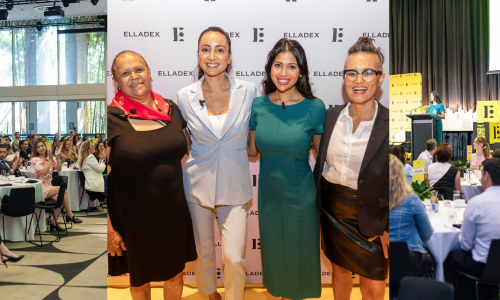6 Min Read
The way that we learn is becoming a more important subject. New insights from psychology and neuroscience have opened many doors to innovate learning and make it more efficient. Technology has allowed everyone with a smart device to gain access to world-class education at minimal costs. But, it seems that mentorship is still the most effective way to learn the skills for your ultimate success.
Today, it seems that the only thing standing in the way of people becoming more informed and increasingly smarter is a lack of personal motivation and not having a strategy to navigate the huge amounts of information available.
A great tactic to fuel your motivation for learning and developing a learning strategy is to acquire a mentor; a domain expert in a given field who has achieved something that you want to achieve. Mentors ‘cut the fat’ — meaning that they guide you through the most relevant and important concepts, so as not to overwhelm you, but to make you more skilled and competent as a result.
People who perform at a high level utilise mentors and coaches to get a perspective that is outside themselves in order to increase their value offering.
A brief history of ancient education
The semantics of ancient education
Before 3100 BC, information was passed down through word of mouth and apprenticeships. Children learned through play and by actively working in their family’s trade (typically agriculture). Anthropologists say that hunter-gatherer groups of children couldn’t distinguish between work and play because all interactions with the world were new and exciting; stimulating the basic human need for novelty. As societies started to expand, villages became towns, became cities, became kingdoms — people needed to be able to transmit information to each other in order to keep the state stable and able to grow. This is why the invention of writing, around 3100 BC by the Egyptians and Babylonians was the single most important thing to set humans on a trajectory of becoming the cognitive animal — the species that set out to master the environment, the mind and life through knowledge.
It took a long time for writing to become widespread. This is not a surprise because learning to write is hard.
Enter the schooling system
People needed to start incorporating the skill of writing into everyday life, so they developed a system that required children to attend formal education in order to attain these skills. The teachers were religious leaders who were scribes in the court or priests in the temple. This meant that education revolved around the teachings of the religious doctrines of the society — understanding holy texts, being able to memorise them and to reproduce them in some instances.
Writing set the stage for the invention of mathematics, which led to the invention of commerce, navigation and astrology.
The Ancient Greeks then innovated learning in antiquity because they divorced education from the rigid religious traditions to which they were previously bound. Their philosophy was that every person should seek knowledge and skills in order to become a good citizen, so that they could serve their country and state. This meant that the maintenance of religiosity and spirituality was the responsibility of the student, outside of the classroom.
For example, Spartans were required to be well versed in the physical arts and Athenians were required to be competent in the diplomatic and legal arts of peace and war. All education had to be appropriate for the goals of the state.
Once you reached 14 years old, your education ended. If you wanted ‘secondary’ education you had to study under a philosopher.
Formal education is political, mentorship is individual
We see that formal and compulsory education is political. Meaning that it is set in motion to benefit the state in the end, not the individual. The state needs to keep producing skilled human resources to sustain the economy and keep it alive.
However, individual's learning goals are limited to the areas where they perceive they’ll receive the most happiness. This means that people don’t really want to learn more, they want to learn just enough to keep them happy now and to safeguard their future. The short of it is that more knowledge doesn’t make you happier, or more productive for that matter, but the right knowledge does and will.
Formal learning is important, but only because it provides a baseline level of knowledge. If you want to grow beyond the ‘classroom’, you must seek out specialists who have more experience than you in particular areas. This is the tried and tested method of how talented individuals become the amazing innovators of the future.
Mentors are the missing piece
What’s missing today is access to mentors: the experts who have lived out the knowledge in a practical way and who can synthesise the information to suit our needs.
Mentors are the tailors that don’t give you wafts of information, but give you bespoke knowledge that you can employ in your business, work and interactions. They are the specialists who have achieved success by taking risks, gained valuable experience and synthesised their knowledge into actions, methods and systems. So, why should you start from scratch when someone else has already cut out a path that works.
We are biologically wired to share information
People share information all the time in the form of stories, news, body language and more.
In general, we want to help others learn what we know because this increases the likelihood of them being more competent and ultimately having our back if the need arises. Best selling author and professor of Marketing at Wharton, Johan Berger, states that people share information because of its emotional valence.
This means that if something makes you angry, excited, laugh or cry, you are more likely to share it with others. The thing with mentors is that they have found a way that has worked for them, that has made their lives better — this information is tied to a positive emotional valence, and that means that they want to share it with you. So, don’t feel ashamed to go out and ask someone to be your mentor — you are potentially fulfilling their biological need to share information with you.
How to find great mentors
When you go out and find mentors, there are a few things you need to consider first:
1. What specific thing are you trying to improve
Your mentor shouldn’t be a ‘jack of all trades’. They should be someone with expert skills in a key are that you are trying to get better in.
2. What can I offer them in return for their expertise
Don’t expect mentors to be rushing to you to offer their valuable time for free. Providing value to mentors could be in the form of payment, services, help or any other additional value that you can provide. See if you can come to an arrangement where both parties are amicably pleased with the outcome.
3. Find surrogate mentors — the people you can access now
Search your network for people who are achieving things that you want to achieve. They don’t have to be at the top of the game yet, but they do need to be further along than you. If you get started in this way, you can leverage your surrogate mentor's network — remember to provide value to your surrogate mentor. You never know, they could be at the top of their game in the next few years. You want to have people like that on your side in the future.
Women tend to have a harder time finding mentors. This is because of the lack of female representation in senior level positions. For me, this was a big deal. The Remarkable Woman was formed to pair up growth-minded and ambitious women with industry experts. It’s a place where you get unlimited access to leaders in their field. More importantly, it’s a place that changes lives: personally, professionally and financially.
A strategy for getting the most out of mentors
Once you’ve organised a mentor, it’s time to structure your interactions and develop a curriculum. Think about what outcomes you what for your future and dive deep into the practical aspect of how your mentor can get you there.
1. Book in regular meet-ups
Weekly meetings with your mentor should be the most that you interact with them.
Talk about 1 issue only during every meeting
You don’t want to get overwhelmed. You want to have the important points noted to take action on.
3. Ask for brutal feedback
Your mentor’s job is to encourage you, but not to necessarily be a source of ‘feel-good’ emotions. You want unadulterated feedback that could potentially hurt your feelings, because it will help you in your career, business, relationships and life.
4. Talk about mindset
Successful people have spent a lot of time on their ‘mental hygiene’. This means that they know what it takes to build the mental robustness to deal with challenges and failures. Don’t forget to ask your mentor about their mental strategies for dealing with these situations.
5. Specify a deadline for the mentor-mentee relationship
This may sound odd. But, a great mentor or coach should want to work their way out of your life. They don’t want to become a pillar in your life, they should want to give you the tools and strategies so you can build the pillar yourself. Tell your mentor what you want to achieve and that you want them to help you get there at a given deadline. This tells your mentor and yourself that you are serious and that your efforts and focus are being directed towards a specific goal.
For people who are striving and struggling forward, getting a mentor is a valuable place to invest your time.


.png?width=1680&height=650&name=ON%20THE%20DEX%20-%20COVER%20IMAGE%20(1).png)



